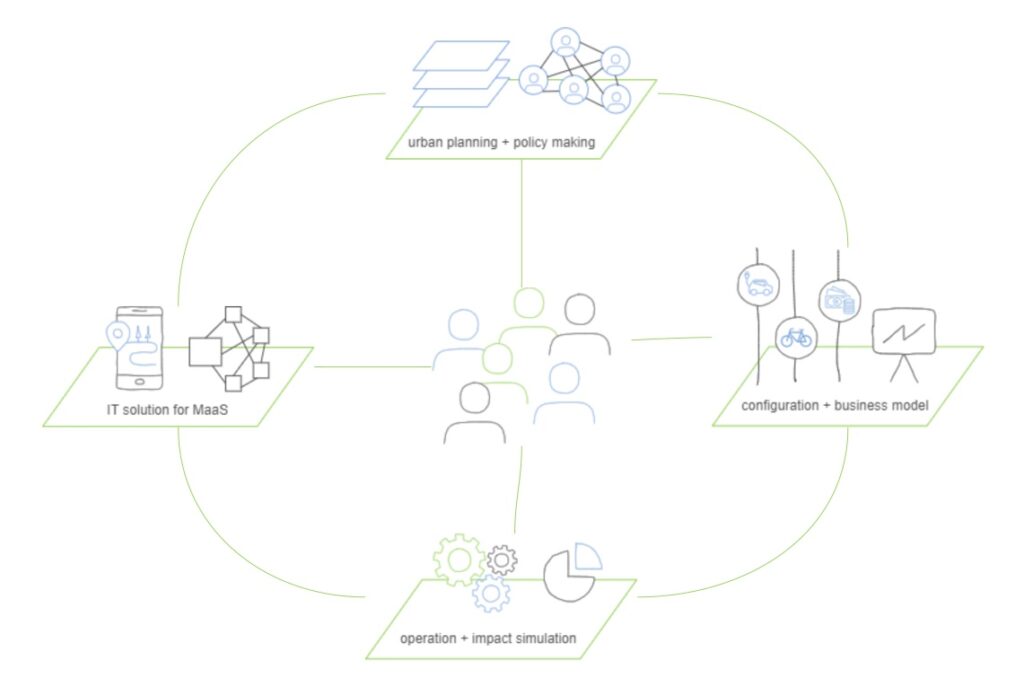A diverse European group of experts discussed the integrated insights generated in the OptiMaaS project. In our final international expert panel (IEP), we zoomed into different layers of mobility as a service.
OptiMaaS integrates the user’s perspective as well as urban planning, policies and financing models, IT-development on diverse simulations and app-prototypes. Impulse presentations on the main insights were the input for debates during our breakout sessions.

Change can be initiated by setting both, enabling and restricting actions. Therefore, the government’s decisions are playing a big role in our mobility choice and long-term urban development visions are key. Harmonization of national and municipal strategies, provision of (public) space, and responsibility for a digital booking infrastructure – just to name a few – are the core conclusions of OptiMaaS Policy Labs.
To change the user’s mobility behaviour, several alternatives of sharing vehicles are needed. OptiMaaS investigated mobility points within urban non-core areas in Vienna and Oslo to assess their impact on changing mobility patterns. Besides that, many different factors like financing models, localization and setup of organizational rules for providers have to be considered.
In order to create a connection between the user and the provider, and to change mobility behaviour, an App is often a key instrument. Within OptiMaaS Labs, users had the chance to give input in the design process of an App and express preferences for new On Demand mobility offers. Many users wish that the app should be working within an established MaaS system.
Predicting future mobility choice is not entirely feasible and accurate, but simulation of users’ mobility can help planners with their decisions. For data-driven planning, we build a digital twin of the city or part of it. This is not an easy task as data often is not available as necessary, thereby increasing the complexity for building such simulations.
The insights presented and discussed, confirmed by in-depth analyses and conclusions can soon be found in in the OptiMaaS recommendations we are currently working on – Date of publication end of May.